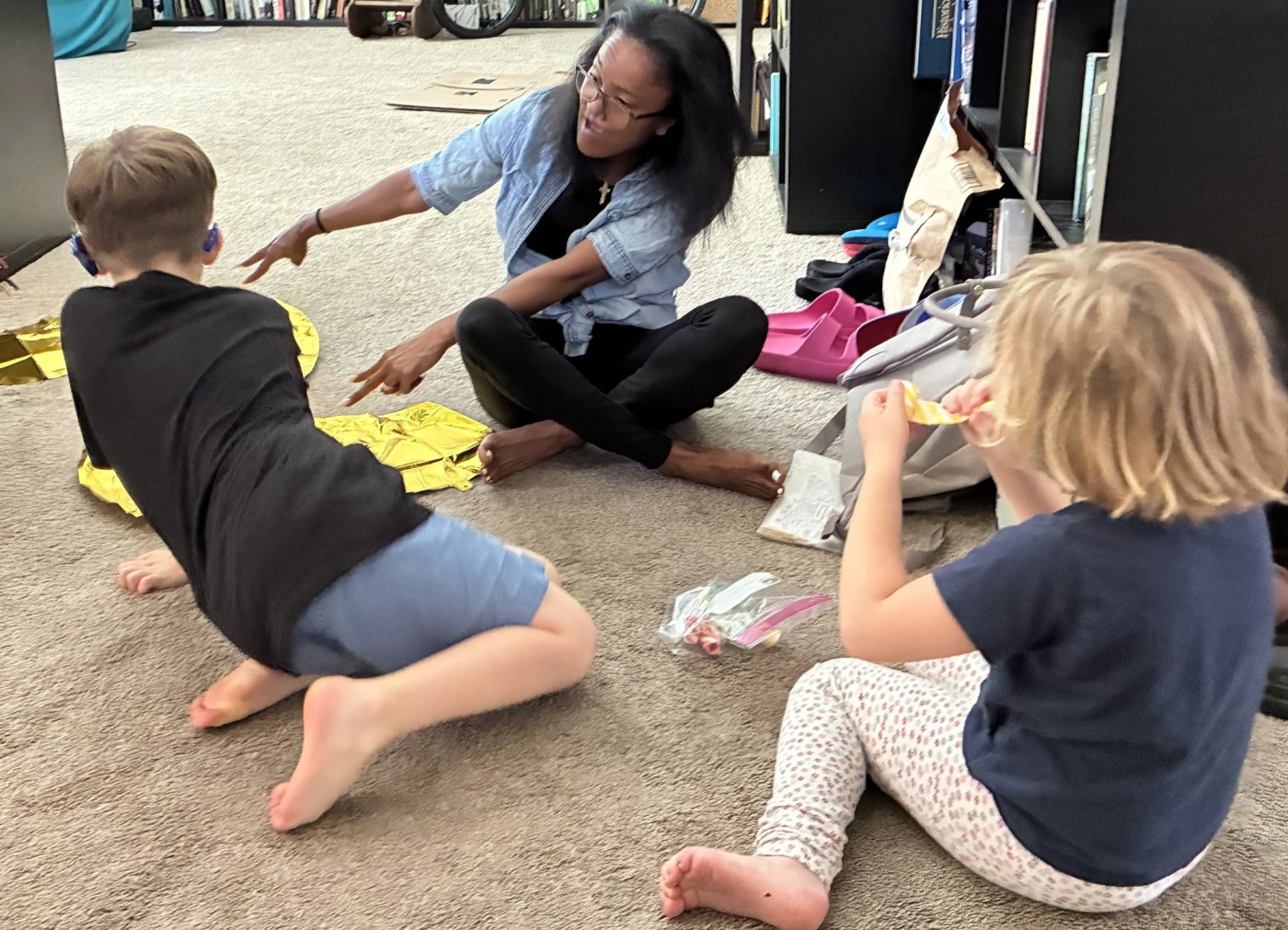
I swear, the Center for Early Intervention on Deafness (CEID) in Berkeley never ceases to amaze me. Founded in 1980 by Jill Ellis and Mary Molcavage, it’s based on an obvious fact that many people don’t seem to realize: The time between ages 0 and 5 is the most important stage in your life because that’s when you’re installing the operating system in the most sophisticated computer in the world, your own brain.
Unfortunately, there’s a big if: You won’t start learning how to read until you’re 6 or 7, so you have to learn all the basic concepts — hot and cold, up and down, in and out, mom and dad, day and night, etc. — through your eyes and ears instead. But what if you were born deaf? If somebody doesn’t figure out how to get that crucial information to you anyway, you’re going to be stuck playing catch-up for the rest of your life,
That’s where CEID comes in. It’s a preschool program that assesses each child and develops a personalized approach to overcoming any obstacles — whether those may be hearing aids, cochlear implants or other support. In the meantime, it starts teaching the kids American Sign Language right away.
CEID has come up with a lot of ways to do it. Now, under the leadership of Cindy Dickeson, who succeeded Ellis as executive director in 2014, the center has come up with a new one: the Deaf Coaching Program.
“With the increase of deaf teachers at CEID, we thought, ‘Why not have them work with the parents, who most often are not deaf/hard-of-hearing themselves?’” says Davana Jackson, who coordinates the Deaf Coach Program and was a CEID student herself before ultimately becoming a role model.
“Any time I see a little light go on in a child’s eyes as they realize that they can use their hands to talk and see their confidence slowly emerging, it makes me cry with happiness. It gives them the vocabulary to be better advocates for their deaf identity.”
The biggest fans of the program are the parents themselves.
“The Deaf Coach Program has meant so much to my family,” says one mom. “Both of our children are deaf and also have a rare genetic deaf/blind condition, and one of our primary goals is to foster a confident, strong sense of self in them. Being deaf/blind, our children straddle two different communities and may face challenges in finding a place where they ‘belong.’ Davana is such a wonderful influence on them.
“She helps them practice different language modalities and validates that deafness and deaf identity is a diverse spectrum, so they can choose their identity for themselves. She also shares aspects of deaf culture and history with them — for example, that the internationally recognized Deaf Flag was designed by a French artist with their own genetic condition.
“We have a lot of fun, laughs, and meaningful moments together. We always look forward to our time with her, and the kids say she is their ‘best friend.’ ”
If you’d like to find more about CEID, you can find a lot of interesting stuff on their website at ceid.org. You also can have an informal tour if you like. I guarantee you’ll come out smiling; it’s a very happy place. Call them at 510-848-4800, and they’ll set it up. CEID’s Greatest need right now is support from the community. If you want to donate, you can do it on their website or send them a check at 1035 Grayson St., Berkeley, CA 94710.
P.S.: The last time I wrote about CEID, it was about their partnership with Prospect Sierra Elementary School in El Cerrito, with the third-graders acting as big brothers and sisters to the little kids at CEID, which I thought was a very generous thing for them to do. What I didn’t fully realize until I sat down to write this column is how much it’s actually a win-win situation.
Yes, the little kids are thrilled. After all, if you’re a little kid, a big kid is the next thing to God. To have one even acknowledge your existence, let alone be nice to you, is the thrill of a lifetime. As for the big kids, it’s an introduction to one of life’s greatest pleasures: the warm feeling that comes from being kind.
Martin Snapp can be reached at [email protected].